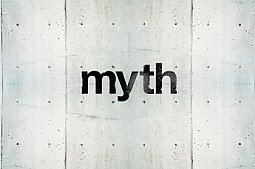MYTHS and URBAN LEGENDS:
“Safe” Neighborhoods

Myths and Urban Legends endanger your safety. Myth Busters debunks the urban myths, urban legends, and folklore that make you easy prey for predators.
Predators have all heard how naïve people in “safe” neighborhoods actually brag about not locking their doors. Yet unlocked doors allow roughly half of the 7,000 home invasions daily (in the U.S. alone).
The second most common home invasion is a Push-In – when a predator rings or knocks on a door and a victim blindly opens it. That's always a gamble. Why risk it?
THE NAÏVETÉ OF THE PREY
SUBURBAN ILLUSION
Even after three unrelated, vicious slayings of
women in their own homes within one week, suburbanites north of New
York City still tend to cling to the illusion that they have “location
immunity.”
It’s the “it can’t happen here” attitude that afflicts low-crime neighborhoods everywhere. Oh, after a shocking local murder, some people might start locking their doors and turning on their alarm systems, and foregoing their solitary walks and jogs through parks, but within a few months it’ll be back to the same old sloppy security as usual.
See what happened in a wealthy Connecticut neighborhood: The Media Whispers the Truth about the Petit Family Massacre.
VICTIMS' BLUNDERS
The most common victims’ blunders are the easiest to avoid by:
• ALWAYS locking all your doors/windows (see Door Security Systems,
• NEVER opening your door unless you’re absolutely sure you know and trust the person ringing your doorbell (prevent Push-Ins and Scam-Ins by using peepholes and a doorbell intercom at home intercom system, and
• NEVER going to an isolated location without adequate protection. See Running Safety, Walking Safety, and Hiking Safety, Street Crime, Purse Snatching, Parking Lot Safety, and Driving Safety Tips.
FAMOUS LAST WORDS

People who don't expect to be victims are the easiest targets by naïvely clinging to illusions that soften the world:
•“We don’t bother to lock the doors – nothing ever happens around here.”
•“I’m not worried. I can take care of myself, I grew up with three
brothers.”
•"Who wants to live in fear – always looking over your shoulder?”
•“It only happens to people on the news – not to me.”
•“I don’t think negative thoughts so I don’t attract negative things.”
•“Don’t worry! Be happy!”
THE ILLUSION OF SAFETY

Even isolated towns and gated communities have homegrown psychopaths and lunatics – as well as the occasional visiting predator. They’d love to meet you face-to-face. There you are – carefree, trusting, polite, naïve – a dream-come-true for a predator. Crime survivors almost always say, “I never thought it would happen to me.”
You can be murdered in the "safest" area, or live a lifetime without a scratch in a murder capital. But since anyone living in or near any metropolitan area lives near thousands of paroled – and mobile – violent felons, your odds are always a gamble.
The 4 Worst Myths and Urban Legends
The Naïveté of the Prey takes four forms:
1. carefree/careless (assuming no one wants to harm you, you act carelessly);
2. too trusting (if someone seems harmless or has a good story, you’re gullible);
3. mirror imaging (assuming a predator shares your morals, you try to reason with him rather than outsmart him); and
4. location immunity (assuming you’re in a “safe” area, you turn off your danger radar and fall into one of the first three traps).
NEVER drop your guard, and NEVER let anyone you don't know and trust get near you (while in a vulnerable location) or isolate you (no matter how friendly they appear). See how to Set Your Boundaries in Friendly Predators.
Gamble in Vegas – not in your life.
IMPROVING YOUR ODDS
Carry Pepper Spray & a Personal Security Alarm (noisemaker or screamer) within easy reach. Those pages tell you how to use them most effectively.
Crime-Safety-Security > Site Directory > Myths and Urban Legends









